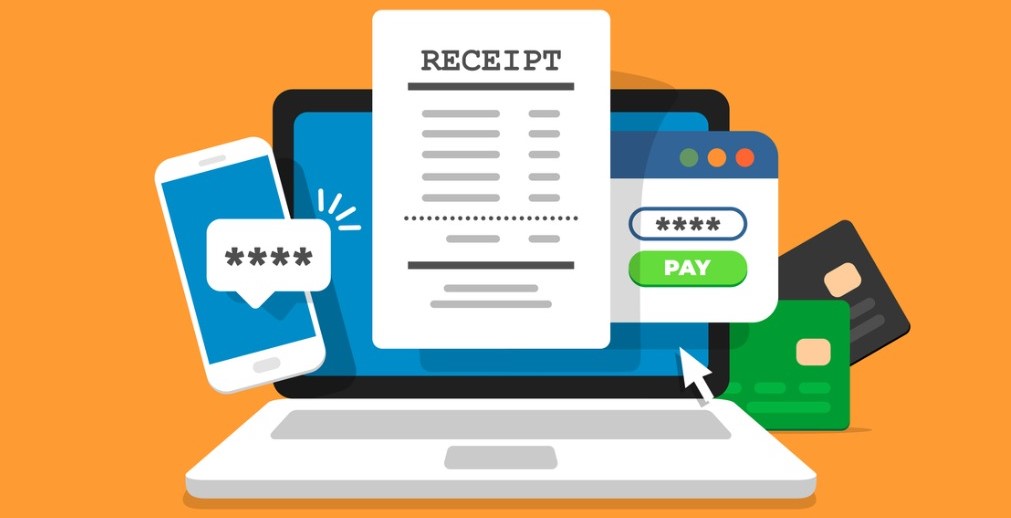Essential Facts About Credit Card Processing

By Nuno Salgado, Payfirma (click here for original post)
Payfirma is a partner of Telos One, and your one-stop merchant services provider for secure credit card processing.
Business owners often find the process of accepting credit cards confusing, so we thought we’d debunk some of the common misconceptions people have about credit card processing. Are you wondering whether your business should start accepting credit cards? Here are some facts about credit card processing.
Myth #1: Accepting credit cards costs too much.
Fact: While there are costs associated with accepting credit cards, your business may lose even more money if you don’t accept card payments. Credit and debit payments offer many benefits, such as improved cash flow and higher sales. Given that the total value of credit card transactions in Canada reached $615 billion dollars in 2019 alone, it’s clear that you’re missing out on revenue if you don’t accept credit cards.
Consumers today value speed and convenience above all. The use of contactless payments and mobile is growing steadily, and many customers don’t even carry cash: in 2020, COVID-19 caused a 62% drop in cash payments in Canada, for example. Card and electronic payments are now essential for businesses, not only to offer online ordering or click-and-collect options, but also to make shopping safer for customers. During the pandemic, 42% of Canadians said they’d avoid shopping at businesses that don’t offer contactless payment options.
So yes, there is a cost to accepting credit cards, but the cost of not accepting them is even higher.
Myth #2: It’s hard to keep cardholder and sensitive data safe.
Fact: Accepting credit cards means you have to deal with PCI compliance, and that’s not always easy. Anyone who has contact with cardholder data is responsible for making sure their business practices are PCI-compliant. PCI compliance is not mandated by law, but there are serious penalties for businesses that aren’t compliant, and these could cause both immediate and long-term financial damage to your business.
The good news? A good payment processor will take care of the requirements that keep your business PCI-compliant, so look for one that supports this option.
Myth #3: My funds will be held, and I won’t get paid immediately.
Fact: The probability that your funds will be held or delayed depends on what type of processor you go with. There are two main options: a merchant account provider or a processing aggregator. A merchant account provider sets you up with a dedicated merchant account that you own. Applying for your own merchant account is a bit more comprehensive than applying for a regular account: the processor will need information about your business, such as high and low processing volumes and average transaction tickets. This will help avoid interruptions to your cash flow.
With a processing aggregator, the application process is simpler. This lets businesses start processing card transactions quickly and easily. But because aggregators combine several similar businesses under one umbrella and allow them to use a communal merchant account, they also carry higher risk. As a result, they are very vigilant about potential security risks. They don’t know regular processing details about your transactions, and they will not hesitate to hold your funds temporarily—often without warning—to investigate any suspicious activity.
If you partner with a merchant account provider, you can typically expect to see funds in your account within 1-2 business days.
Myth #4: I’ll need to buy expensive equipment.
Fact: Many payment processors offer multichannel payment solutions for your business. These give you options to process credit card payments using equipment you already own, like your mobile device, tablet or laptop.
Mobile payments: Using a mobile app and a card reader, you can accept credit card payments on the go, anywhere you do business.
Web terminal: Also known as a virtual terminal, this payment method lets you securely accept credit card payments by inputting the details into a web browser. All you need is an internet connection.
Recurring billing: Does your business support a subscription billing model? Recurring billing is an efficient solution, and just like the web terminal, it’s accessible on any web browser.
E-commerce: Selling goods and services online is another way to avoid buying additional equipment, plus you can expand your market and accept credit card payments worldwide.
Invoicing: With digital invoices, you can email branded invoices to your customers. They can pay in just a couple of clicks using the embedded payment method on the invoice.
But if you want to accept debit, chip and PIN or contactless payments, you’ll need a traditional terminal. Luckily, there are options for traditional terminals that won’t break the bank. If you rent a terminal, the cost is billed monthly and is more digestible. Another benefit to renting: if there’s a problem with your terminal or if the technology updates, you’ll be sent a new terminal.
Myth #5: There are too many monthly and additional fees.
Fact: Depending on your business, there is some truth to this one. If your business doesn’t process a lot of credit card payments each year, the additional fees may not make sense. In this case, you may be better off partnering with an aggregator.
It’s worth noting, however, that most aggregators offer flat rates based on volume, and fees go up as the number of transactions rises. If you expect your volume of card transactions to increase, consider a merchant account provider. They can typically customize credit card processing fees when a business processes more than $40,000 each year. Pricing is optimized based on your individual business and considering factors like high and low average transaction sizes.
While the fees are customizable, there may be additional fees and obligations associated with merchant account providers, like monthly fees and contracts. These additional charges often give you access to a wide range of value-added services: a dedicated support rep for your business, more payment processing tools and channels that can help your business grow, robust data and analytics, higher processing limits, etc.
Contact us at https://telos.one/switch/ for all of your payment inquiries.


